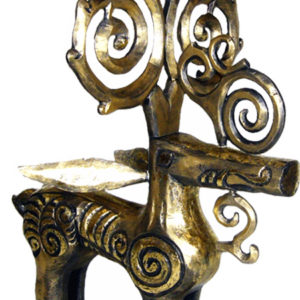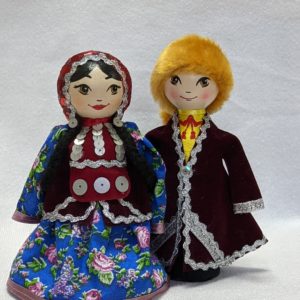The unification of the Bashkir tribes Burzyans, Tamyan, Usergan, Tangaur and Kypsak clans – Kars Kypsak, Sankem Kypsak and Kypsak existed in the 13-16 centuries in southeastern Bashkortostan. On Mount Imen-tau (Zilair district), the tamgas of these seven tribes are burned on an oak pillar. The Union sent a joint embassy to Kazan then to Moscow to negotiate annexation to the Russian state. Shezhere of Burzyan tribes, 3 Kypsak clans, Usergan and Tamyan report that the receipt of awards by each tribe led to the collapse of the Union of seven tribes. 4 ethnographic groups of Bashkirs. According to R.G. Kuzeev, a scientist and ethnographer, the Bashkir tribes are divided into 4 ethnographic groups Southeast: Burzyan, Usergan, Yurmati, Tamyan, Tangaur, Kypsak clans.
Northeastern: Ailin subgroup (aile, kudey, murzalar, duvan, koshsy, syzgy, upey); Katai subgroup (katai, saliut, bikatin, synryan, tersyak, kalmak, Bashkir Cossacks); Tabyn subgroup (tabyn, kuvakan, syrzy). Southwestern: (min, Irgiz-Kamelik Bashkirs Northwestern: Kama-Ik subgroup (Bulyar, Bailar, Yurmi, Irekte); Nizhnebel subgroup (Yeni, Girey, Elan, Kyrgyz, Yeldyak, Kanly, Duvanei, Karshin, Taz, uvanysh), the northern subgroup (uranus, gaina, balyksy, unlar, suun, tanip). Why do the Bashkirs have seven variants of traditional dress. “After the birth of the world, people settled in different places and began to live and live. Each nation was given its own specific language, own clothes … “- says one of the Bashkir legends. But in fact, the national costume is not just a given, but the embodiment of centuries-old history and traditions, a reflection of the way of life and character of the people.
The Bashkir costume is a vivid example of how the differences in clothes of different regions of the same country manifest themselves. Northern Bashkiria was the first to begin the transition to a sedentary lifestyle. Here the population was engaged in the manufacture of fine yarn from plant fibers, patterned weaving developed. In the southern regions, coarse and thin cloth was made, shoes rolled and hats were rolled, preserving
livestock farming skills. There are as many as seven variations of the traditional outfit:
1) northwestern Bashkirs,
2) northeastern,
3) southwestern,
4) southeastern,
5) central,
6) eastern
7) and the Bashkirs of the Samara-Irgiz settlements.
Each variation has an element that is unique to this region.
Collections of souvenir dolls "Union of seven Bashkir tribes (clans), Samara-Irgiz Bashkirs
Doll of the genus “Yurmata” girl
₽ 1,800
Available on back-order
| Dimensions | 16 cm |
|---|





Reviews
There are no reviews yet.